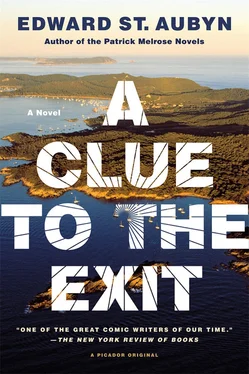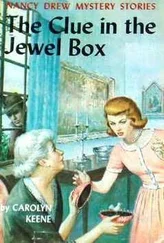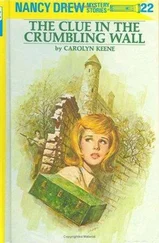I couldn’t help noticing that most people were playing with twenty- and fifty-franc chips. There were some pink five hundreds and blue thousands, but I knew that my 100,000-franc block was bound to be noticed and so, shy as a virgin, when a virgin is shy, I walked over to an empty table where an idle croupier sat alone. I placed the green and white counter on the red diamond and looked at him pleadingly, hoping he would take it away before it attracted any curiosity. A couple of tourists drifting by immediately glued themselves to the table and watched the ivory ball bounce its way into a slot. My prayers were answered. It was black. I met their commiserating expressions with a smile of subtle satisfaction. One hundred thousand francs in under two minutes. What lightness. What clarity of purpose.
I resumed my pacing, hoping to ditch the spectators, and the moment they were on the other side of the room I returned to the empty table and quickly dropped a second counter on ‘Manque’. I had no idea what it meant in casinoland, but its ordinary French meaning of ‘lack’ seemed fitted to my purpose, and indeed I was soon lacking a second 100,000 francs. The satisfaction that accompanied this second loss was tainted by a hollow feverishness, an accelerated pulse, a longing to repeat the act. I was displeased by this impurity. I wanted to taste freedom, not burden myself with some new set of suspect pleasures. I retreated to the casino restaurant, Le Train Bleu, in order to dispel this trace of confusion and prepare myself for an absolutely calm abandonment of my last million francs. I would have to go deeper into the bowels of the casino, to the Salle Privée, where my 500,000-franc counters would be in their natural habitat.
In the meantime, I sat in the fake train compartment of the restaurant, entombed in buttoned-leather padding. Beside me was a glass case filled with old tin toys, and a hand-written card saying: WE BUY OLD TIN TOYS. Here in the kingdom of old tin toys, it was all right to be an old tin toy oneself, or an old tin toyboy for that matter. The grandest toy of all was a great big Italian gunboat. What bliss to be behind those portholes, in the ultimate sealed-off chamber, in the boat, in the case, in the train, in the casino, with great big guns to stop anyone interrupting you — doing what? — playing, of course. Les jeux sont fait , never mind the torpedo in the engine room.
The two women at the neighbouring table spoke in Russian. Hearing that sibilant and barbaric tongue undulating once more through the Salle d’Europe, I reflected on the opportunities for portraying the sickness of a continent through the gaping metaphor of a great casino: the confluence of nations, the teasing combination of formality and mental illness and, above all, the trick of chasing the whore of Fortune while ignoring the fact that time is running out. Naturally, I thought of Thomas Mann’s cosmopolitan morbidity, Dostoevsky’s compulsive gambling, and the Grand Duke Dmitri, exiled to the South of France for helping to murder Rasputin, and missing the excitement of the Russian roulette back home.
With only five months to live, I hardly had time to embark on such an ambitious narrative. I must content myself with carving the cherry stone of consciousness. And so I ordered a risotto di aspergi e gamberoni , which I can unhesitatingly recommend to anyone who is halfway through throwing their capital down the green-felt drains of Monte Carlo, and wrote the following fragment.
Perfect, thought Patrick, she’s come to sit opposite me. He had seen her at the conference and was immediately drawn to this bruised and beautiful woman in a neck brace. Besides the sexual attraction, he felt an obscure but strong affinity with her, as if they were different aspects of the same intention. It was hard to explain, but as she sat down opposite him, closing her eyes while she shifted into a tolerable position, he felt the weight of his desperation become more widely distributed. This was not a vague impression, it had the distinctness of a broken table acquiring another leg.
Crystal smiled at him painfully. ‘You were at the conference, right?’
‘Yes.’
‘Did you like it?’
‘I liked this morning’s Alzheimer doctor,’ said Patrick. ‘The one who said that if you treated the patient as if he were there, “the whole manifestation changed”.’
‘Oh, yes, I liked him too,’ said Crystal enthusiastically. ‘You see, I’ve been treating Peter as if he was there. I ought to explain that I had a car accident with my husband. I had an NDE and he’s still in a coma. We really should have been hanging from the ceiling in a perspex cage during this conference, we’ve become such an ideal consciousness-studies couple.’
‘God,’ said Patrick, ‘I’m sorry to hear that.’ He could tell that this strain of humour was not quite natural to her.
‘Oh, thank you. We were lucky to survive.’ Crystal sighed. ‘I have to say that, because I couldn’t bear hearing someone else saying it again.’
‘It’s not my kind of line,’ said Patrick.
‘Forgive me, but I wasn’t going to take the risk. Yeah,’ she resumed, ‘the Alzheimer doctor was good. That film interview was wonderful and terrifying at the same time. His patient was losing the memory of language without losing the sense of who he was. It suggests that the witness is more fundamental than the executive. When the one who acts collapses, there’s still one to feel him collapse.’
‘Absolutely,’ said Patrick. ‘And the people we treat as absent are in fact desperately frustrated, like a dream where you scream and nobody hears.’
‘Except that you may not wake up,’ said Crystal. ‘In my NDE, I was in the operating theatre listening to the doctors talk about my poor prospects of survival and screaming at them to get the glass out of my neck. They just ignored me. So I try to listen to Peter.’ Crystal’s eyes filled with tears. ‘Try to imagine what he might be wanting to say…’
Patrick could think of nothing to say. He smiled at Crystal, but she stared blindly through the windows of the train. Faced with the pressing prospect of premature death, Patrick felt that he could have been — that he would quite like to have been — in that perspex cage with Crystal, and if necessary the comatose Peter, dangling from the ceiling of the conference room.
He was reminded of Pierre, his old drug dealer from New York. The Ancient Mariner of Lower Manhattan, Pierre compulsively described his bizarre suffering to anyone who came within range. ‘For eight fucking years I thought I was an egg, je croyais que j’étais un oeuf . But I had total consciousness, une conscience totale . I knew everything .’ Unable to crack the ovular self-sufficiency of his body, his awareness left the hospital where he was being treated as a catatonic patient, and sped through a universe bathed in intelligence. From time to time he would return to the scene of his desertion and look down with a stranger’s pity at the frozen body on the bed, at the nurses who came and went, carrying flannels and plates of food. But even Pierre, who was so fascinated by his ecstasy, refused to let go entirely of his body. Recognizing that it was dying of neglect, he forced himself back inside, squirming with reluctance, like a child who has to climb back into a wet bathing suit. ‘I was totally disgusted, man. J’avais un dégoût total. ’
Should Patrick tell Crystal the half-inspiring story of Pierre’s return to animation? Pierre had been catatonic, Peter was in a coma, and neither of them had Alzheimer’s. Still, there were analogies. If an Alzheimer’s patient could go blank and yet know that he was going blank, and if the catatonic Pierre had total consciousness when he appeared to have none, who could confidently say that Peter had no idea what was happening to him?
Читать дальше












